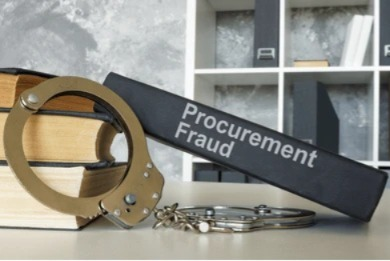
Reported by: Gabriel Osa | Stone Reporters News
The recent election of new executives for the Forum of Directors-General of Public Procurement Agencies (PPA) and Bureaux of Public Procurement (BPP) across Nigeria represents a landmark moment in the nation’s governance landscape. Central to this development is Engr. Muhammad Dauda Abubakar, Director-General of the Gombe State Bureau of Public Procurement, who has emerged as Treasurer and Financial Secretary of the forum. His ascension not only brings personal recognition but also signals the potential for a transformative approach to public procurement and anti-corruption efforts nationwide.
For decades, Nigeria’s fight against corruption has primarily been led by the Economic and Financial Crimes Commission (EFCC) and the Independent Corrupt Practices and Other Related Offences Commission (ICPC). These institutions have undoubtedly made significant strides: recovering looted funds, prosecuting high-profile offenders, and raising awareness about the costs of corruption. However, their approach has largely been reactive, addressing corruption after it has already occurred. Billions of naira are often misappropriated before the agencies can intervene.
Public procurement, on the other hand, offers an opportunity to prevent corruption before it occurs. Many high-profile cases of financial mismanagement in Nigeria trace their roots to inflated contracts, non-transparent bidding processes, and collusion during procurement. By establishing robust checks and ensuring compliance with due process, procurement leaders can effectively starve corruption of its most fertile ground.
The Forum of Directors-General, which unites procurement heads across the country, is uniquely positioned to act as a preventive mechanism. Through coordinated policies, consistent oversight, and a shared commitment to transparency, the forum can mitigate risks of financial mismanagement. Engr. Abubakar’s appointment is particularly symbolic in this context. His tenure in Gombe State has been characterized by reform-driven initiatives, transparency, and strict adherence to due process—qualities essential for instilling confidence in public procurement at a national level.
Governance experts are optimistic about the potential ripple effects. Dr. Chukwudi Anene, a public administration scholar at the University of Lagos, told Stone Reporters News that “integrity in procurement directly influences the efficiency of service delivery. If agencies like the PPA and BPP operate transparently, they set a standard for accountability across all levels of government. This complements EFCC and ICPC’s work by reducing the opportunities for fraud before it occurs.”
Similarly, Mrs. Funke Adegbite, a governance analyst and former civil service commissioner, observed that “the forum’s leadership can shape a culture of compliance and professionalism. This is not just about numbers; it is about creating systems that make it harder for corrupt practices to flourish. When procurement leaders act decisively, the economic benefits are tangible: projects are completed on time, resources are efficiently utilized, and investor confidence grows.”
Public reaction to the forum’s new leadership has been largely positive. Citizens on social media have hailed Engr. Abubakar’s appointment as a “chance to set a new benchmark for accountability.” Many Nigerians expressed hope that the forum would serve as a model for ethical governance, noting that previous procurement practices were often marred by opaque processes and political interference. One user commented, “Finally, someone with a proven track record is taking a seat where they can influence national procurement standards. Let’s hope this translates into real change and not just titles.”
Others have emphasized the economic implications of strong procurement oversight. Public procurement represents a significant portion of government expenditure. Inefficiencies, delays, and corruption in this sector not only waste taxpayer resources but also hinder development projects and investor confidence. Strengthened oversight, therefore, has the potential to catalyze broad economic growth. When contracts are awarded transparently and executed effectively, infrastructure projects—from roads to schools—are completed efficiently, boosting local economies and creating jobs.
However, experts caution that optimism must be tempered with vigilance. Political interference, entrenched interests, and weak enforcement mechanisms have historically undermined procurement reforms in Nigeria. Mr. Ibrahim Bello, a policy analyst, warned that “the forum must resist capture by vested interests and operate independently. Leadership alone is not sufficient; systemic reforms, clear guidelines, and collaboration with anti-corruption agencies are crucial for lasting impact.”
Indeed, EFCC and ICPC have a critical role to play in this ecosystem. By collaborating with procurement agencies, they can identify irregularities early, flag suspicious contracts, and ensure that procurement decisions meet legal and ethical standards. Such proactive engagement could shift the nation’s anti-corruption strategy from reactive enforcement to preventative governance.
Moreover, experts argue that strong procurement leadership can enhance Nigeria’s global standing. Transparent processes, rigorous due diligence, and accountability frameworks can attract foreign investment, strengthen international partnerships, and foster trust among multilateral development institutions. Investors often seek assurances that public funds are managed efficiently, and procurement integrity serves as a visible measure of a country’s commitment to good governance.
Engr. Abubakar’s tenure, therefore, is more than an individual achievement; it is an opportunity to institutionalize a culture of transparency and efficiency across the nation. By setting an example through Gombe State’s best practices, he can inspire other states to elevate standards, creating a nationwide network of accountable procurement processes.
Ultimately, the forum’s effectiveness will depend on sustained commitment, independence, and strategic collaboration with Nigeria’s anti-corruption agencies. If these elements are prioritized, public procurement could shift from being one of the nation’s most vulnerable sectors to one of its most robust defenses against corruption. The economic and social benefits of such a transformation would be immense: better service delivery, increased investor confidence, reduced wastage of public funds, and accelerated national development.
The election of Engr. Muhammad Dauda Abubakar and his colleagues represents a critical moment for Nigeria. It is an opportunity to demonstrate that ethical, transparent, and efficient procurement can serve as a cornerstone for national reform. With strong leadership, robust systems, and active collaboration with anti-corruption institutions, Nigeria’s procurement sector could finally become a model for accountability, efficiency, and economic growth.
📩 Stone Reporters News
🌍 stonereportersnews.com | ✉️ info@stonereportersnews.com
📘 Facebook: Stone Reporters | 🐦 X (Twitter): @StoneReportNews


Add comment
Comments